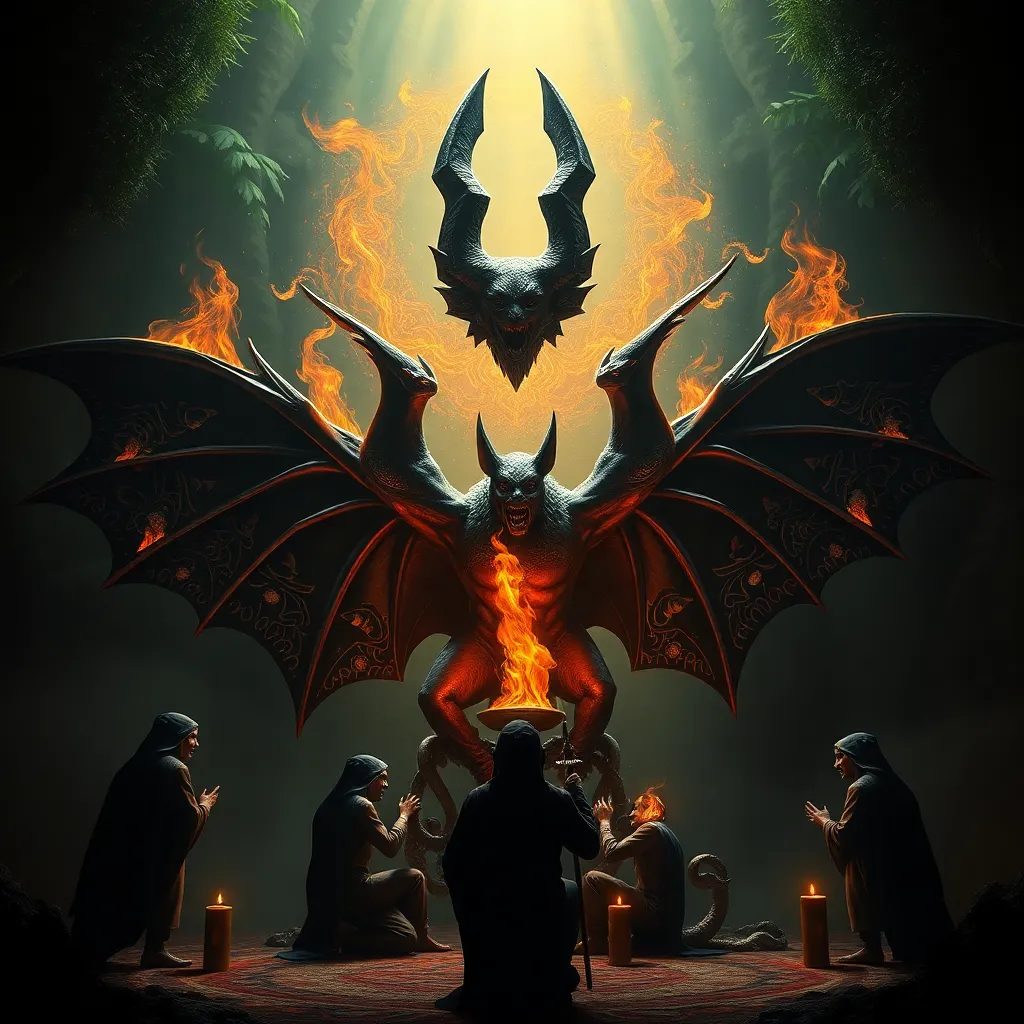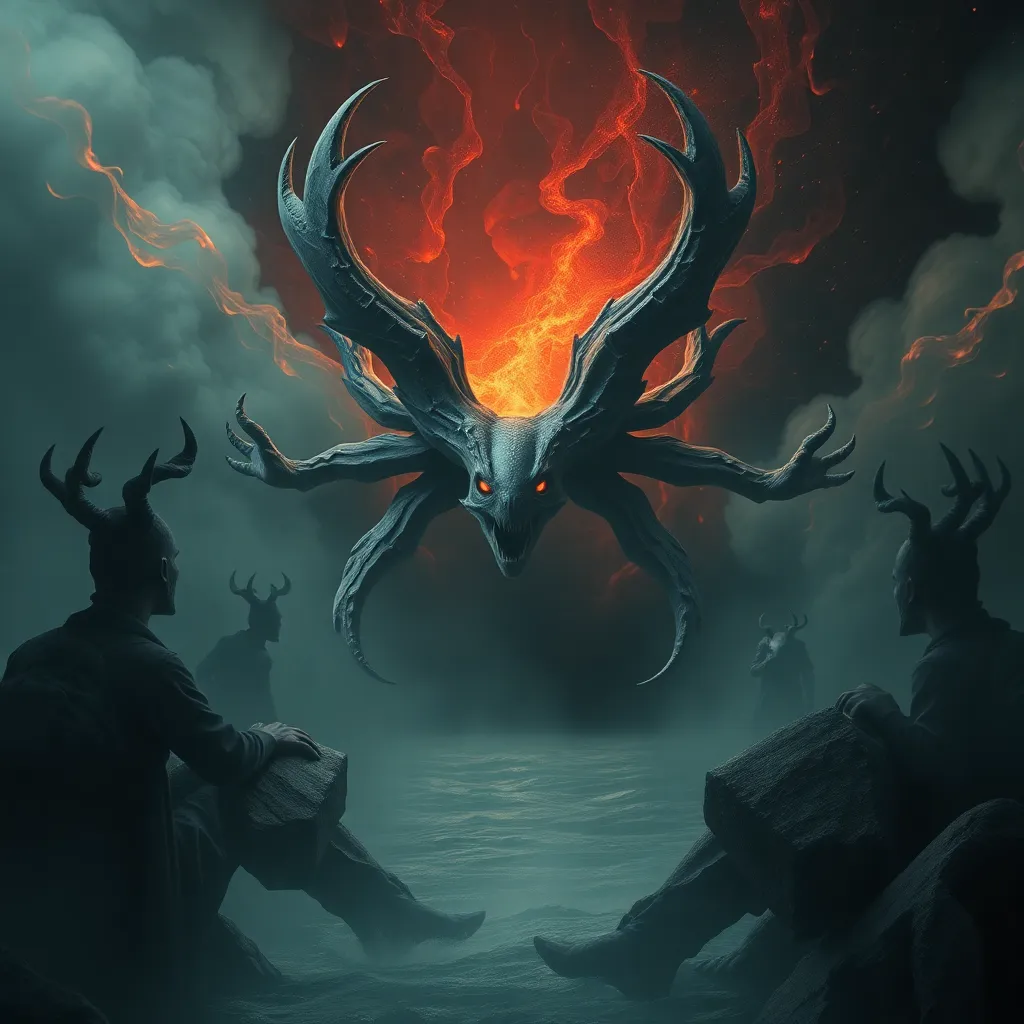Valkyries and the Gods: Exploring the Relationship Between the Shield Maidens and the Norse Pantheon
I. Introduction
The Valkyries, often depicted as fierce and beautiful warrior maidens, occupy a significant place in Norse mythology. These divine figures serve as the emissaries of Odin, the chief of the Norse gods, guiding the souls of fallen warriors to Valhalla.
The Norse pantheon is rich with gods and goddesses, each embodying various aspects of life, death, and the natural world. Among them are Odin, Thor, Freyja, and Loki, each playing vital roles in the myths and legends that have shaped the cultural identity of the Vikings.
This article aims to explore the intricate relationship between the Valkyries and the gods, delving into their roles, significance, and the impact they had on Norse culture and mythology.
II. The Role of Valkyries in Norse Mythology
A. Duties and responsibilities of Valkyries
Valkyries were tasked with selecting those who would die in battle and those who would live. Their primary duties included:
- Choosing the bravest warriors who died in combat.
- Escorting these souls to Valhalla, Odin’s hall.
- Serving the chosen warriors in the afterlife.
B. Symbolism of the Valkyries in battles and afterlife
The Valkyries symbolize both death and honor, embodying the duality of war. They represent:
- The glory of dying a noble death in battle.
- The promise of an afterlife in Valhalla, where warriors feast and prepare for Ragnarök.
C. Historical context of Valkyries in Viking culture
In Viking culture, Valkyries were not only revered as divine figures but also as cultural symbols of bravery and honor. Their presence in sagas and poems highlighted the values of warrior society, where courage in battle was paramount.
III. Key Valkyries and Their Relationships with the Gods
A. Brynhildr: The warrior maiden and her connection to Odin
Brynhildr, one of the most famous Valkyries, is known for her strong will and tragic fate. Her connection to Odin is significant as he both curses and aids her throughout her story, reflecting the complex nature of their relationship.
B. Freyja: The goddess of love and war
Freyja, although primarily known as the goddess of love and fertility, also shares a close relationship with the Valkyries. She is said to receive half of the warriors who die in battle, further intertwining her fate with that of the Valkyries and the slain heroes.
C. Other notable Valkyries and their divine associations
Beyond Brynhildr and Freyja, several other Valkyries hold significant roles in Norse mythology, such as:
- Gunnar: A prominent Valkyrie known for her fierce loyalty.
- Skuld: A Valkyrie associated with fate and the future.
- Herja: Often called upon to inspire warriors in battle.
IV. The Valkyrie’s Influence on Fate and Destiny
A. The concept of Wyrd in Norse belief
Wyrd, a fundamental concept in Norse mythology, refers to the idea of fate and destiny. Valkyries are seen as agents of Wyrd, influencing the outcome of battles and the fate of warriors.
B. Valkyries as weavers of fate
Traditionally, Valkyries are depicted as weaving the fates of men. This portrayal emphasizes their role in determining who lives and dies, as well as shaping the destinies of both mortals and gods.
C. The impact of Valkyrie choices on warriors and the gods
The choices made by Valkyries not only affect the warriors they select but also reverberate through the divine realm, influencing the actions and decisions of the gods themselves.
V. Valkyries in Literature and Saga
A. Representation in the Poetic Edda and Prose Edda
The Poetic Edda and Prose Edda are primary sources of Norse mythology, where Valkyries are frequently mentioned. Their heroic deeds and relationships with the gods are explored in various poems and stories.
B. Valkyries in Norse sagas and skaldic poetry
Valkyries also appear in numerous sagas and skaldic poetry, reflecting the cultural significance they held within Viking society. These narratives often highlight their bravery and the honor associated with their role.
C. Modern interpretations and adaptations of Valkyries in literature
Today, Valkyries continue to inspire modern literature, appearing in novels, comics, and films. Their portrayal often blends traditional attributes with contemporary themes, making them relevant in today’s cultural landscape.
VI. Theological Implications of Valkyries’ Relationships with the Gods
A. The interplay between divine authority and human agency
The relationship between Valkyries and the gods raises questions about divine authority and human agency in Norse mythology. Valkyries, as intermediaries, play a crucial role in this dynamic.
B. Gender roles and power dynamics in Norse mythology
Valkyries challenge traditional gender roles in Norse society. As powerful female figures, they disrupt the male-dominated narrative, showcasing women’s significant roles in the mythological framework.
C. How Valkyries challenge or reinforce societal norms
While Valkyries are often seen as embodiments of strength and independence, their actions can also reflect societal norms and expectations regarding women’s roles in Viking culture.
VII. Valkyries in Contemporary Culture
A. Valkyries in modern media (film, literature, and gaming)
Valkyries have found a renewed interest in contemporary media, appearing in films, video games, and literature. Their characterizations often blend traditional elements with modern storytelling techniques.
B. The resurgence of interest in Norse mythology
The resurgence of interest in Norse mythology has led to a revival of Valkyrie imagery, often symbolizing empowerment and strength in popular culture.
C. Impact of Valkyrie imagery on popular culture
Valkyries have become symbols of female empowerment and warrior spirit, influencing various forms of artistic expression and cultural representation in today’s world.
VIII. Conclusion
The Valkyries hold a vital place in the tapestry of Norse mythology, serving as both agents of fate and representations of warrior ideals. Their relationships with the gods, particularly Odin and Freyja, underline the complexity of divine interactions in Norse belief.
As symbols of strength, courage, and the duality of life and death, Valkyries have left an enduring legacy that continues to resonate in modern society. Their stories encourage deeper exploration into the fascinating world of Norse mythology and its characters.
For those intrigued by the rich narratives of the past, the legacy of the Valkyries serves as an invitation to delve further into the captivating realm of Norse myths and legends.



